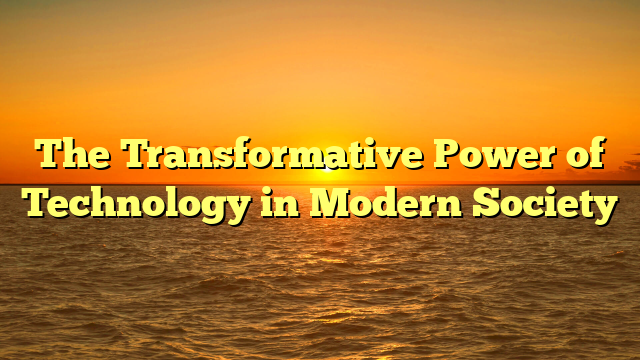Technology has become the backbone of modern civilization, reshaping how people live, work, and interact with the world. From the invention of the wheel to the era of artificial intelligence, technological progress has consistently acted as a catalyst for human kingindo127 development. Today, technology is no longer a supporting tool; it is an essential driver of change across nearly every sector.
One of the most evident impacts of technology is in communication. A few decades ago, sending a message across continents could take weeks. Now, through instant messaging, video conferencing, and social media platforms, people can connect in real time regardless of geographical boundaries. This advancement has not only strengthened personal relationships but also enabled businesses to expand globally with greater efficiency. The rise of digital communication tools has redefined the meaning of accessibility and connectedness in human interactions.
In the field of education, technology has revolutionized both teaching and learning methods. Online learning platforms, interactive software, and virtual classrooms provide opportunities for students around the world to access knowledge without limitations. Educational resources are now available at the touch of a button, breaking down barriers caused by location, cost, or even disability. This democratization of information has allowed more people than ever before to pursue education and professional development.
Healthcare is another area where technology plays a crucial role. Innovations such as telemedicine, robotic surgery, wearable health devices, and AI-powered diagnostic tools have dramatically improved patient care. These advancements not only increase accuracy and efficiency in treatment but also make healthcare more accessible to people in remote areas. For instance, a patient in a rural village can consult a specialist in another country via video call, ensuring timely medical advice without the need for long travel.
The business world has also been transformed by technological integration. Automation, big data, and cloud computing have changed how companies operate, making processes faster, cheaper, and more reliable. Artificial intelligence assists in analyzing consumer behavior, predicting trends, and optimizing supply chains. As a result, businesses are able to provide more personalized services and make better decisions. At the same time, technology has opened doors for entrepreneurs and small businesses to compete on a global scale, leveling the playing field.
However, alongside its benefits, technology also brings significant challenges. Issues such as data privacy, cybersecurity threats, and the spread of misinformation have become pressing global concerns. Furthermore, the rise of automation and AI has sparked debates about job displacement and the future of employment. Balancing technological progress with ethical considerations is therefore essential to ensure that advancements benefit society as a whole.
Looking ahead, the future of technology promises even greater transformation. Emerging fields like quantum computing, biotechnology, and renewable energy solutions hold the potential to solve some of humanity’s most pressing problems. Whether addressing climate change, curing diseases, or exploring space, technology continues to expand the boundaries of what is possible.
In conclusion, technology is not merely a tool but a driving force that shapes every aspect of modern life. Its influence is evident in communication, education, healthcare, and business, offering countless opportunities while also presenting new challenges. As society continues to adapt to these rapid changes, the key will be ensuring that technological progress is guided by ethical principles and a focus on human well-being. By doing so, technology can remain a transformative power that leads to a more connected, healthier, and sustainable future.
